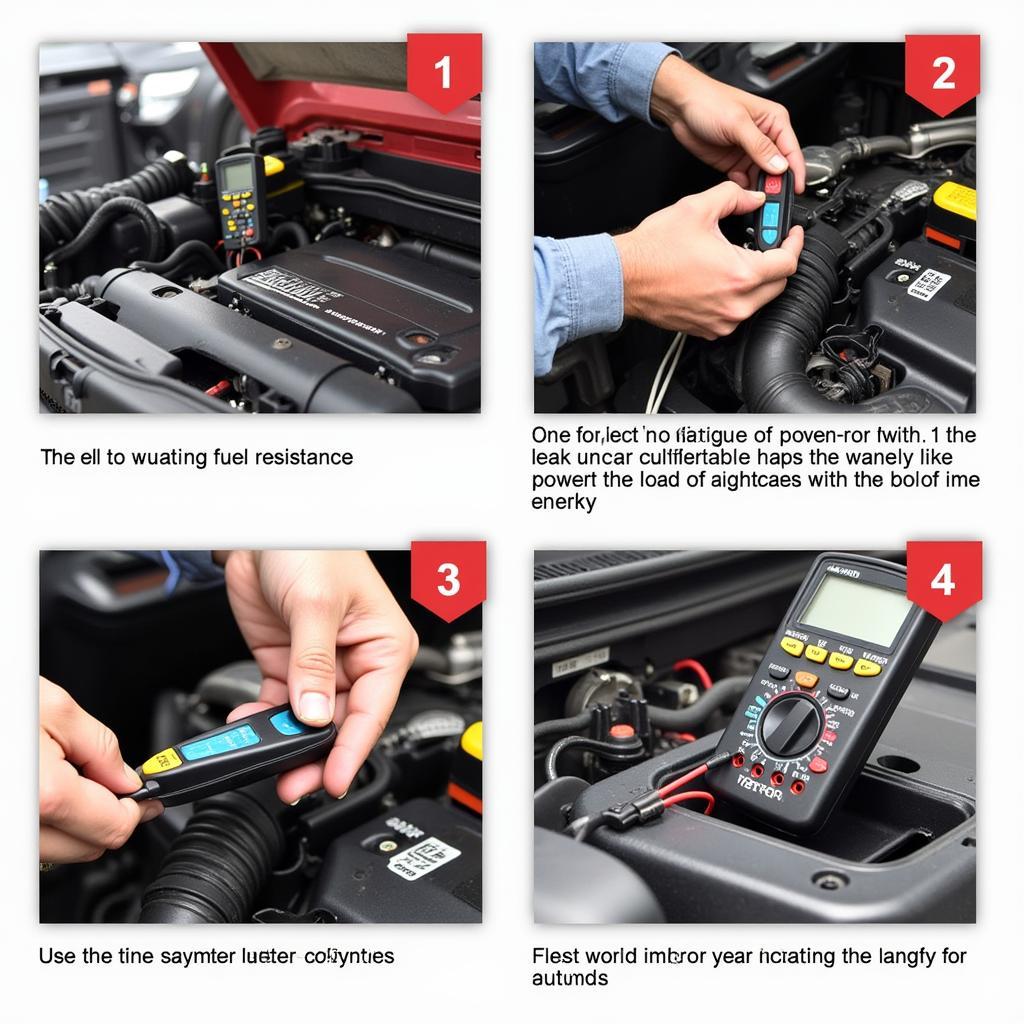Your cart is currently empty!

Decoding Audi Error Code P0300: A Comprehensive Guide
The dreaded check engine light illuminates your Audi’s dashboard, and a quick scan reveals the cryptic code P0300. This signifies a random/multiple cylinder misfire, a common yet potentially complex issue that can significantly impact your Audi’s performance. This comprehensive guide dives deep into understanding, diagnosing, and resolving the P0300 error code in your Audi.
What does the P0300 code mean, and what are the common causes? How can you effectively diagnose the problem and implement the correct fix? This article will answer these questions and provide a step-by-step guide to troubleshooting this frustrating error code, ensuring your Audi runs smoothly again.
Understanding the P0300 Error Code
The P0300 diagnostic trouble code (DTC) indicates a random or multiple cylinder misfire detected by your Audi’s engine control unit (ECU). A misfire occurs when the air-fuel mixture in a cylinder fails to ignite properly, or the combustion process is incomplete. This can lead to a range of drivability issues, including reduced power, rough idling, poor fuel economy, and increased emissions. Understanding the underlying causes is crucial for effective repair.
Common Causes of P0300 in Audis
Several factors can contribute to the P0300 error code in Audis. These include:
- Faulty Spark Plugs or Ignition Coils: Worn-out spark plugs or failing ignition coils can disrupt the spark needed for combustion, leading to misfires.
- Vacuum Leaks: Leaks in the intake manifold or vacuum hoses can disrupt the air-fuel mixture, causing incomplete combustion.
- Fuel System Issues: Problems with the fuel pump, fuel filter, or fuel injectors can restrict fuel delivery, leading to misfires.
- Sensor Malfunctions: Faulty sensors, such as the mass airflow sensor (MAF) or oxygen sensors, can provide incorrect data to the ECU, affecting the air-fuel mixture.
- Mechanical Issues: Internal engine problems, such as worn piston rings or valves, can also contribute to misfires, though these are less common with the P0300 code.
Similar to engine code audi 2014 q5, understanding the specific causes for your Audi’s year and model is crucial for accurate diagnosis.
Diagnosing the P0300 Code
Diagnosing the P0300 code requires a systematic approach:
-
Check for Specific Cylinder Misfire Codes: If alongside the P0300, you see codes like P0301, P0302, etc., these pinpoint the misfiring cylinder(s), simplifying the diagnosis.
-
Inspect Spark Plugs and Ignition Coils: Visually inspect the spark plugs for wear, damage, or fouling. Test the ignition coils using a multimeter or dedicated coil tester.
-
Check for Vacuum Leaks: Inspect vacuum hoses for cracks or loose connections. Use a vacuum gauge or carburetor cleaner to test for leaks.
-
Test Fuel System Components: Check fuel pressure and volume. Inspect the fuel filter and consider cleaning or replacing it. Test fuel injectors for proper operation.
-
Scan for Sensor Malfunctions: Use an OBD-II scanner to check for sensor-related codes and monitor sensor readings.
-
Perform a Compression Test: A compression test can identify mechanical issues like worn piston rings or valves.
It’s important to remember that multiple issues can contribute to the P0300 code, so a thorough diagnosis is essential. For older Audis, some issues might resemble 2008 audi a4 error codes, requiring careful consideration of the model’s specific characteristics.
Fixing the P0300 Code
Once you’ve diagnosed the cause of the P0300 code, the appropriate repair can be performed. This may involve:
- Replacing Spark Plugs and Ignition Coils: Replace worn or faulty spark plugs and ignition coils with high-quality OEM or equivalent parts.
- Repairing Vacuum Leaks: Replace cracked or damaged vacuum hoses and tighten loose connections.
- Addressing Fuel System Issues: Replace a faulty fuel pump, fuel filter, or fuel injectors.
- Replacing Malfunctioning Sensors: Replace faulty sensors with OEM or equivalent parts.
- Repairing Mechanical Issues: Address internal engine problems, if any. This may require more extensive repairs.
What if the P0300 Code Returns?
If the P0300 code returns after repairs, recheck your diagnosis. Ensure all components are functioning correctly, and consider seeking professional assistance if the problem persists. Sometimes, issues like finding the best plugs for audi a4 b5 2.8 throwing codes can be tricky and require expert advice.
Preventing Future P0300 Codes
Regular maintenance is crucial for preventing future P0300 codes. This includes:
- Regular Spark Plug and Ignition Coil Replacement: Follow the manufacturer’s recommended replacement intervals.
- Regular Fuel System Maintenance: Replace the fuel filter as recommended and use quality fuel.
- Routine Inspections: Regularly inspect vacuum hoses and other engine components for signs of wear or damage.
Just like understanding what do audi engine codes mean, preventative maintenance is key to long-term engine health and avoiding costly repairs.
 Testing Audi Fuel Injectors
Testing Audi Fuel Injectors
Conclusion
The Audi P0300 error code can be a frustrating issue, but with a systematic approach to diagnosis and repair, you can get your Audi running smoothly again. Remember that preventative maintenance is key to avoiding future occurrences. For any further assistance or questions regarding Audi error codes, connect with us at VCDSTool. Our number is +1 (641) 206-8880 and our email address: vcdstool@gmail.com and our office is located at 6719 W 70th Ave, Arvada, CO 80003, USA.
If your older Audi is experiencing similar issues, researching 2003 audi a4 check engine light codes can provide further insight.
by
Tags:
Leave a Reply